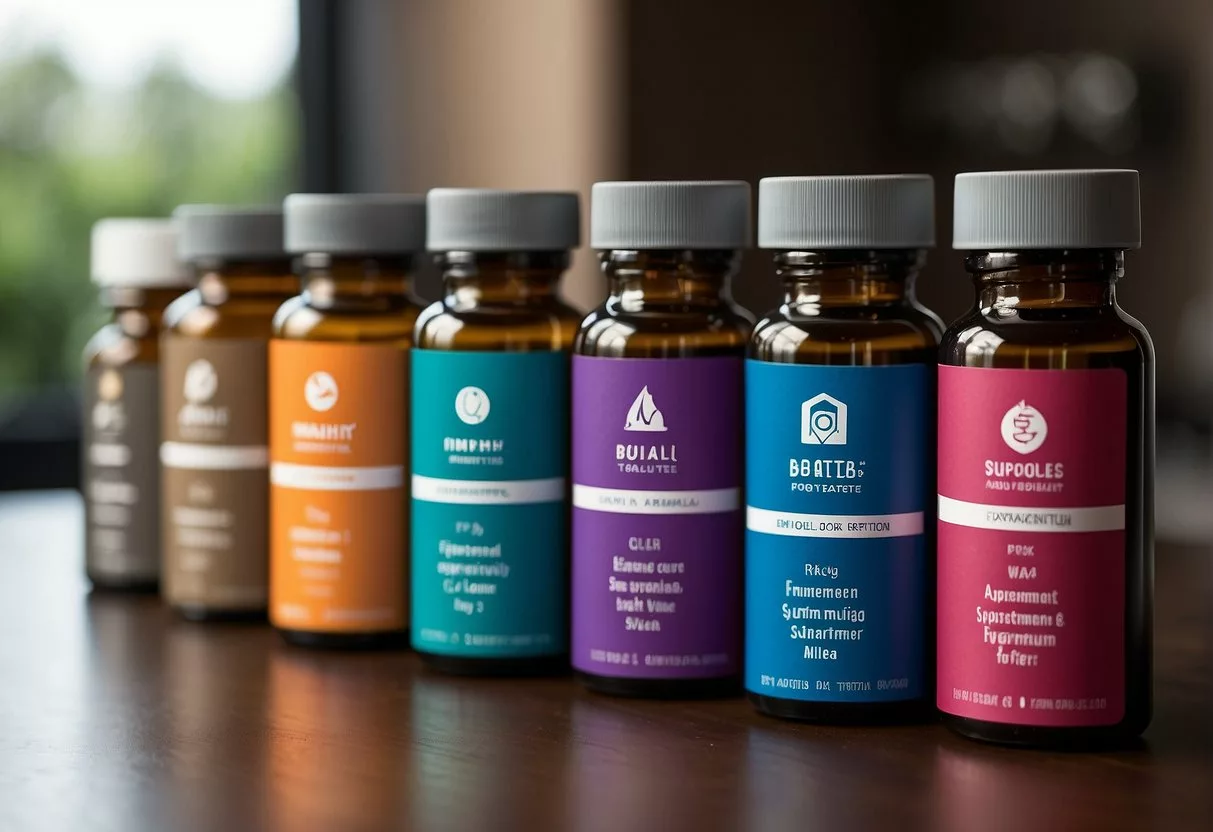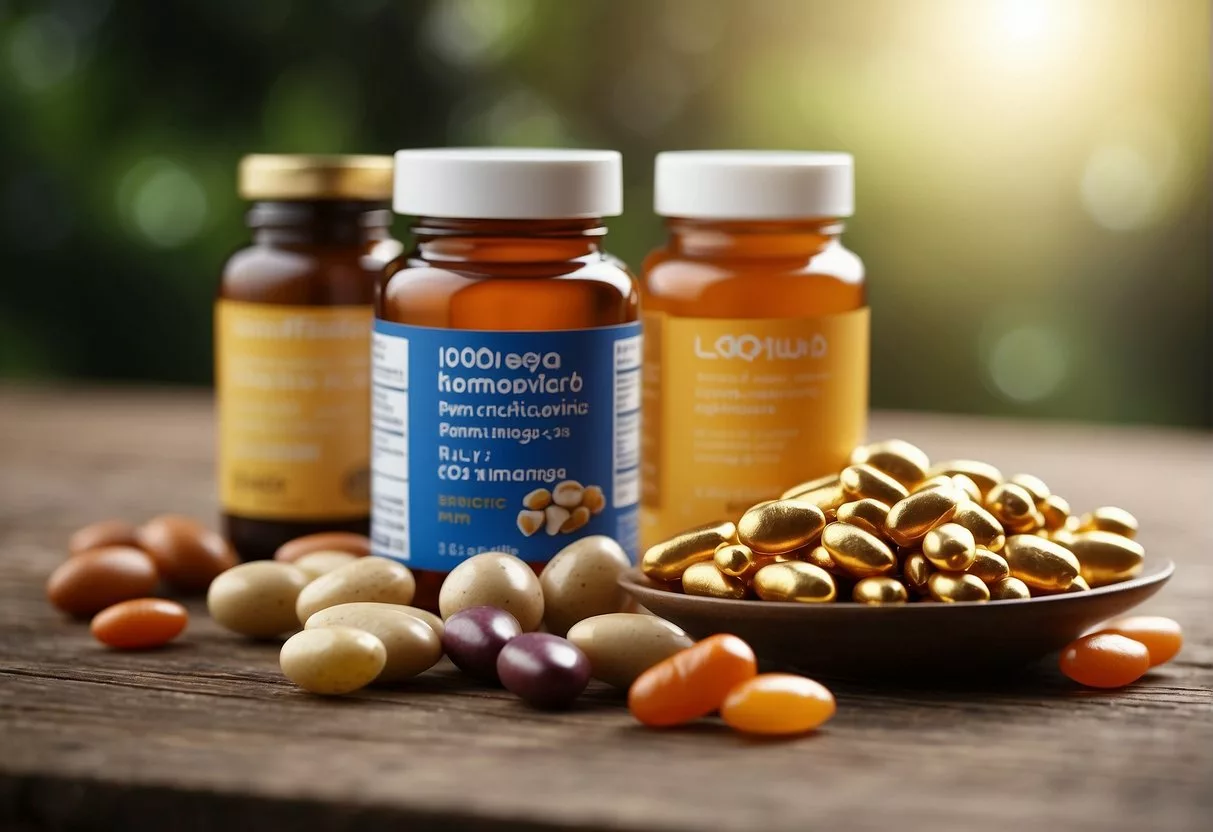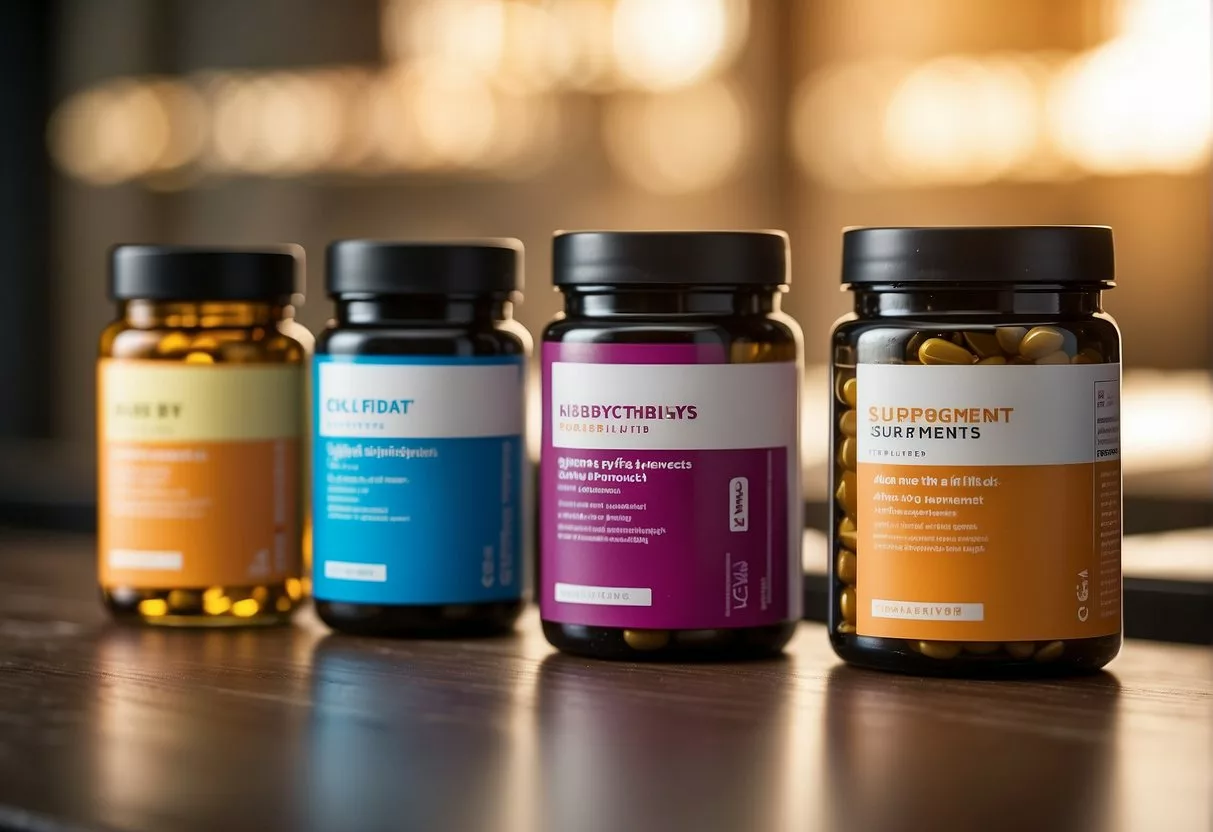Supplements have become increasingly popular in recent years as people search for ways to improve their health and longevity. While a healthy diet and regular exercise are essential for healthy aging, many people turn to supplements to provide additional support.
In this article, we will explore five supplements or groups of supplements that may help you live longer and healthier, based on scientific research and expert recommendations.
The aging process is complex and involves several factors, including genetics, lifestyle, and environmental factors. As people age, their bodies undergo various changes that can increase the risk of chronic diseases and impair overall health.
While aging is a natural process, it is possible to slow down its effects and improve quality of life through healthy habits and targeted supplementation.
Essential supplements for healthy aging can provide a range of benefits, from reducing inflammation and oxidative stress to improving immune function and cognitive health.
However, it is important to note that supplements are not a magic solution and should be used with a healthy diet and lifestyle. In the following sections, we will explore the potential benefits and risks of supplementation, as well as dietary and lifestyle considerations to support healthy aging.
Key Takeaways
- Supplements can provide additional support for healthy aging, but should be used in conjunction with a healthy diet and lifestyle.
- Essential supplements for healthy aging can provide a range of benefits, from reducing inflammation and oxidative stress to improving immune function and cognitive health.
- It is important to consider supplement quality and efficacy, as well as potential risks and interactions with medications.
The Aging Process

As people age, their bodies undergo various changes that can impact their health and longevity. Some of these changes are biological, while others are influenced by environmental factors such as nutrition and lifestyle choices. Understanding the aging process and its impact on the body can help individuals make informed decisions about their health and well-being.
Biological Factors of Aging
Several biological factors contribute to the aging process. One of the most significant is the deterioration of mitochondria, which are responsible for producing energy within cells. As mitochondria become damaged over time, they become less efficient at producing energy, which can lead to cellular damage and a range of age-related diseases.
Another important factor is DNA repair, which becomes less effective as people age. This can lead to mutations and other cellular damage that can contribute to the development of cancer and other diseases.
Senescent cells, which are cells that have stopped dividing and begun to accumulate in the body, also play a role in the aging process. These cells can cause inflammation and contribute to the development of age-related diseases.
Impact of Nutrition on Longevity
Nutrition plays a critical role in promoting longevity and healthy aging. One important factor is the impact of advanced glycation end products (AGEs), which are compounds that form when proteins and sugars combine. AGEs can contribute to cellular damage and inflammation, which can accelerate the aging process.
Another important factor is the role of reactive oxygen species (ROS), which are molecules that can cause cellular damage and contribute to the development of age-related diseases. Consuming foods that are rich in antioxidants, such as fruits and vegetables, can help reduce the impact of ROS and promote healthy aging.
Finally, autophagy and gene expression also play important roles in the aging process. Autophagy is the process by which cells break down and recycle damaged cellular components, while gene expression refers to the way that genes are activated and deactivated within cells. Both of these processes can be influenced by nutrition and lifestyle choices, and can have a significant impact on the aging process.
In summary, understanding the biological factors that contribute to the aging process, as well as the impact of nutrition and lifestyle choices, can help individuals make informed decisions about their health and well-being.
Essential Supplements for Healthy Aging

As people age, their bodies undergo changes that can lead to decreased nutrient absorption and utilization. This can cause deficiencies in essential vitamins and minerals, which can contribute to a variety of health problems. Fortunately, there are several supplements that may help support healthy aging and promote longevity.
1. Antioxidants and Free Radical Scavengers
Antioxidants are compounds that help protect the body against damage from free radicals, which are unstable molecules that can cause cellular damage and contribute to aging. Some of the most well-known antioxidants include vitamins C and E, as well as minerals like selenium. Other compounds, such as resveratrol and CoQ10, may also have antioxidant properties.
2. Vitamin D and Bone Health
Vitamin D is essential for bone health, as it helps the body absorb calcium and maintain strong bones. Unfortunately, many people are deficient in this important nutrient, especially as they age. Supplementing with vitamin D may help reduce the risk of fractures and improve overall bone health.
3. Omega-3 Fatty Acids and Heart Health
Omega-3 fatty acids are essential fats that have been shown to have numerous health benefits, including supporting heart health. These fats are found in fatty fish like salmon, as well as in supplement form. Supplementing with omega-3s may help reduce inflammation, lower blood pressure, and improve overall cardiovascular health.
4. Supplements Supporting Mitochondrial Health
Mitochondria are the energy-producing organelles within cells, and their health is essential for overall health and longevity. Supplements like NMN and nicotinamide riboside (NR) may help support mitochondrial function, as they are precursors to NAD+, a molecule that is essential for energy production.
5. Other Supplements
B vitamins: B12 and B6 are particularly important for nerve health, cognitive function, and the formation of red blood cells. Older adults may have a reduced ability to absorb B12 from food.
Magnesium, zinc, probiotics, curcumin, lutein and zeaxanthin.
Overall, supplementing with certain vitamins, minerals, and other compounds may help support healthy aging and promote longevity. However, it is important to note that supplements should not be used as a replacement for a healthy diet and lifestyle. Consult with a healthcare professional before starting any new supplement regimen.
Dietary and Lifestyle Considerations

When it comes to living a long and healthy life, dietary and lifestyle considerations are key. Incorporating nutrient-rich foods and staying physically active are two important factors that can help promote healthy aging.
Incorporating Nutrient-Rich Foods
A healthy diet that includes a variety of nutrient-rich foods such as vegetables, fruits, nuts, legumes, and healthy fats is essential for healthy aging. These foods are rich in antioxidants, vitamins, and minerals that can help protect against chronic diseases and support heart health.
Fatty fish and fish oil are also important sources of nutrients, particularly omega-3 fatty acids, which are essential for brain health and may help reduce the risk of heart disease. Dairy products are also a good source of nutrients such as calcium and vitamin D, which are important for bone health.
The Role of Physical Activity
Physical activity is another important factor in healthy aging. Regular exercise can help maintain muscle mass, improve cardiovascular health, and reduce the risk of chronic diseases such as diabetes and heart disease.
Incorporating both aerobic and strength-training exercises into a daily routine can help promote healthy aging. Activities such as walking, cycling, and swimming are great options for aerobic exercise, while weightlifting and bodyweight exercises can help maintain muscle mass and strength.
Overall, incorporating a healthy diet and regular physical activity into daily life can help promote healthy aging and may even help extend lifespan.
Potential Benefits and Risks of Supplementation

Supplements have become increasingly popular as a means of achieving optimal health and longevity. While many supplements have been shown to provide benefits, it is important to understand the potential risks and limitations associated with their use.
Enhancing Immune Function and Reducing Inflammation
Certain supplements, such as turmeric, have been shown to have anti-inflammatory properties and may be beneficial for reducing inflammation in the body. Inflammation is a natural response to injury or infection, but chronic inflammation can contribute to a variety of age-related diseases. Additionally, amino acids such as glutamine and arginine may help support immune function and reduce the risk of infection.
Supporting Cardiovascular and Brain Health
Supplements such as omega-3 fatty acids, magnesium, and CoQ10 have been shown to support cardiovascular health by reducing blood pressure and cholesterol levels. Additionally, these supplements may help reduce the risk of cognitive impairment and support brain health. Collagen supplements may also help support joint and bone health.
Considerations for Cancer and Chronic Diseases
While some supplements may have the potential to reduce the risk of cancer and other chronic diseases, it is important to use caution when taking supplements for these purposes. Some supplements, such as high doses of vitamin E, may actually increase the risk of cancer. Additionally, supplements such as beta-carotene and vitamin A may increase the risk of lung cancer in smokers. It is important to speak with a healthcare provider before taking any supplements for the prevention or treatment of chronic diseases.
In conclusion, while supplements may offer potential benefits for overall health and longevity, it is important to understand the potential risks and limitations associated with their use. By using caution and consulting with a healthcare provider, individuals can make informed decisions about which supplements may be right for them.
Supplement Quality and Efficacy

When it comes to choosing dietary supplements to promote longevity, quality and efficacy are key factors to consider. Here are some things to keep in mind:
Evaluating Supplement Sources
It is essential to evaluate the quality of the supplement source before purchasing. Third-party testing and certification can help ensure that the product contains the ingredients listed on the label and that it is free from harmful contaminants. Look for certifications from organizations such as NSF International, USP, or ConsumerLab.com.
Be Careful with Dosage and Interactions
Dosage and interactions with other supplements or medications are also important considerations. It is crucial to follow the recommended dosage on the label or as directed by a healthcare professional. Taking excessive amounts of certain supplements can lead to adverse effects, such as liver damage, gastrointestinal distress, or nutrient imbalances.
Additionally, some supplements may interact with medications or other supplements, potentially causing harmful side effects. For example, some minerals, such as iron and calcium, can interfere with the absorption of other nutrients when taken together. Enzyme supplements may also interact with medications that affect blood clotting or blood sugar levels.
In summary, choosing high-quality supplements and following recommended dosages can help ensure their efficacy and safety. It is also important to be aware of potential interactions with other supplements or medications. Before starting any supplement regimen, it is recommended to consult with a healthcare professional to determine the most appropriate approach based on individual needs and health status.
Frequently Asked Questions

Which supplements have scientific backing for anti-aging properties?
Several supplements have scientific evidence supporting their anti-aging properties. These include resveratrol, curcumin, nicotinamide riboside, and astaxanthin. Resveratrol, found in red wine and grapes, has been shown to activate certain genes that promote longevity. Curcumin, a compound found in turmeric, has antioxidant and anti-inflammatory properties that may help prevent age-related diseases. Nicotinamide riboside, a form of vitamin B3, has been shown to increase lifespan in animal studies. Astaxanthin, a pigment found in seafood, has been shown to improve skin health and reduce inflammation.
What are the top supplements recommended by experts for promoting longevity?
Experts recommend a variety of supplements for promoting longevity, including omega-3 fatty acids, vitamin D, magnesium, and probiotics. Omega-3 fatty acids, found in fish oil supplements, have been shown to reduce inflammation and improve heart health. Vitamin D, which can be obtained through sunlight or supplements, has been shown to improve bone health and reduce the risk of certain cancers. Magnesium, found in leafy green vegetables and supplements, is important for bone health and muscle function. Probiotics, found in fermented foods and supplements, can improve gut health and boost the immune system.
Which vitamins have been linked to increased lifespan in clinical studies?
Vitamins that have been linked to increased lifespan in clinical studies include vitamins C, D, and E. Vitamin C, found in citrus fruits and supplements, has antioxidant properties that may help prevent age-related diseases. Vitamin D, as mentioned earlier, has been shown to improve bone health and reduce the risk of certain cancers. Vitamin E, found in nuts and seeds, has antioxidant properties that may help prevent cell damage and reduce the risk of certain diseases.
What are the most effective anti-aging supplements according to dermatologists?
Dermatologists recommend a variety of supplements for anti-aging, including collagen, hyaluronic acid, and vitamin C. Collagen supplements have been shown to improve skin elasticity and reduce wrinkles. Hyaluronic acid supplements can improve skin hydration and reduce the appearance of fine lines. Vitamin C, as mentioned earlier, has antioxidant properties that can help prevent cell damage and improve skin health.
What are the best brands for supplements focused on longevity?
There are many reputable brands that offer supplements focused on longevity. Some of the most popular and trusted brands include NOW Foods, Life Extension, and Garden of Life. It’s important to do your own research and choose a brand that fits your specific needs and preferences.
Are there any universally recommended supplements for overall health and longevity?
While there is no universal supplement that is recommended for everyone, there are several that are generally considered safe and beneficial for overall health and longevity. These include omega-3 fatty acids, vitamin D, magnesium, probiotics, and multivitamins. It’s important to consult with a healthcare professional before starting any new supplement regimen.
